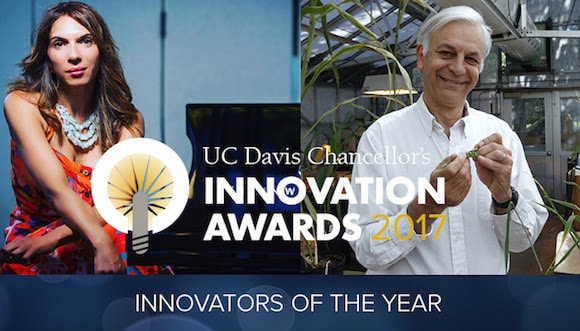Pianist shares innovation award with scientist
mainThe American pianist Lara Downes has been named Innovator of the Year at the University of California, Davis, together with the wheat geneticist Jorge Dubcovsky, distinguished professor of plant sciences.

Jorge Dubcovsky is a leader in the field of plant memory – how crops adapt to weather cycles.
Lara Downes has released a timely album America Again, inspired by Langston Hughes’ 1935 poem, ‘Let America Be America Again’.
‘It has been a difficult time to be an artist in America,’ she says.






Comments